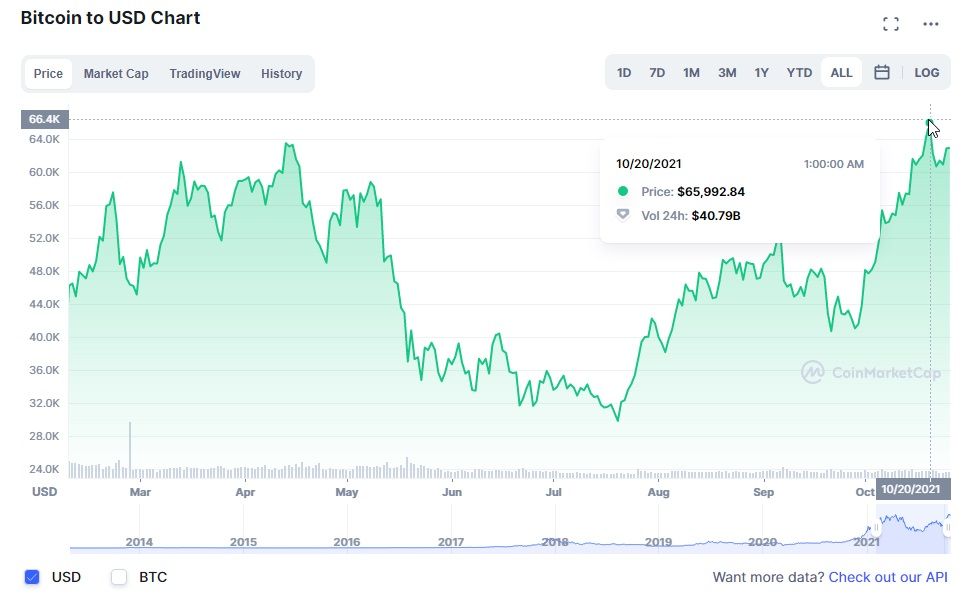China's cryptocurrency ban has been an ongoing problem for Bitcoin, coming into full effect in September 2021. Since then, Bitcoin's hash power, most of which was located in China, has plummeted by at least 75%.
Now, Chinese miners are fleeing in droves in what has been branded the "Great Mining Migration." And just as with the migrations of late antiquity, Chinese miners are looking to settle West.
This large relocation of resources and computing power will not come without consequences. And what will it mean for Bitcoin?
China's Cryptocurrency Ban
China has been working to ban cryptocurrencies for a while now. The Chinese government had already issued a series of increasingly restrictive legal prohibitions against cryptocurrencies, starting in 2009 and issuing the first Bitcoin-specific ban in 2013. However, although they were aimed at curtailing cryptocurrencies, they only targeted some of their aspects.
Only now has China managed to ban cryptocurrencies for good. But in the meantime, China's crypto-industry flourished.
Since the launch of Bitcoin, China's affordable hardware and cheap power have attracted many crypto miners. Crypto mining operations in China became so big at one point that industrial size mining operations were commonplace. By the time Chinese miners started shutting off their machines, China was home to at least 65% of Bitcoin's hashrate.
All of this came to an end on September 24, 2021, when China's central bank, along with ten government bodies, issued a joint statement vowing to root out "illegal" cryptocurrency activities. The statement deemed them illicit financial activities, effectively outlawing cryptocurrency mining and forcing large numbers of Chinese miners into exodus.
Why Is China Banning Bitcoin?
China's Bitcoin ban was a long time coming. The free and unregulated nature of cryptocurrency markets goes against the Chinese government's vision of a planned economy. In fact, China had already banned cryptocurrencies over a dozen times before managing to do it.
The Chinese government's ideological concerns regarding the economy are now coupled with another more incidental problem: the need to curb CO2 emissions. In September 2020, China announced its plan to reduce its year-on-year growth of CO2 emissions within the next decade and to become carbon neutral by 2060.
Given the high energy consumption needed for crypto mining and that the Chinese government considers that the crypto industry doesn't benefit the country's economy, the ban makes sense.
On the other hand, there's China's state-backed Digital renminbi (also known as the Digital yuan). From the Chinese government's perspective, it just wouldn't make sense to issue a state-backed cryptocurrency and allow coexistence with other digital currencies as they would only represent competition.
The reason is likely a combination of reasons, but the first consequence of the ban is already felt. The great mining migration is happening, and miners are looking for new land to settle.
The Great Mining Migration
Now that China's cryptocurrency ban has come into effect, Chinese cryptocurrency miners are forced to stop operating in the country or face prosecution. Chinese miners are packing up with no other choice at hand, though some have chosen to move to underground, off-grid power sources. Many displaced Chinese crypto miners are already settling into new operations in the West.
Since the ban came into effect, the Bitcoin network lost at least 75% of its hash power, which means that the cryptocurrency world, and Bitcoin, in particular, is suffering the most dramatic demographic change of its history.
Where Are Chinese Cryptocurrency Miners Headed?
Even though Bitcoin's total global hashrate has dropped since the Chinese government issued the cryptocurrency ban, it is already starting to grow back up as crypto miners start to settle elsewhere. But where are they settling?
Looking for increased legal compliance and stability, as well as cheap energy sources, crypto miners have set their sights on the US. Since the ban, the US has more than quadrupled its share in the world's BTC mining pool.
American companies have been very active over the past few years, even when BTC was in sharp decline. Furthermore, there was a serious growth in US crypto-mining infrastructure where American companies were building up their hosting capacity as they waited for the inevitable to happen.
And when it happened, they sure were ready. The US migration began back in 2020. Although this was before the ban, China's dominance over Bitcoin had begun to slip already.
These crypto miner migrants are mainly settling in the US because they are looking for greater legal and political stability. The fact that the US is home to some of the cheapest sources of energy is desirable, too. As a result, the US is now home to the largest percentage of BTC miners globally.
Kazakhstan has also seen an increase in its share of the world's BTC mining. Being home to a large coal industry and vast unexploited resources, the country offers very cheap energy, which is very attractive for crypto miners. Also, cryptocurrencies are legal in the country, offering some legal stability, and the fact that the country borders China reduces transportation costs.
How Will the Great Mining Migration Affect Bitcoin?
Although more than half of BTC miners stopped operations created a lot of uncertainty at first, the Chinese Bitcoin ban does not have to be a bad thing for Bitcoin in the long run. In fact, since the ban, the price of BTC has reached an all-time high, hitting almost $66,000 on October 20, 2021.
What's more, there have long been complaints among the Bitcoin community about the Chinese mining cartels that controlled the network. A great mining migration of Chinese cryptocurrency miners means that all that monopolized hash power will be distributed worldwide, opening up the Bitcoin network to fairer competition.
What Does China's Crypto Ban Mean for Bitcoin?
After years of attempts by the Chinese government, they finally banned all cryptocurrencies for good. Or at least any other than their state-backed Digital renminbi. Forced to shut down operations, Chinese miners packed up and left the country looking for somewhere new to settle.
China's move just caused the largest demographic change in the history of Bitcoin, along with a lot of uncertainty. This could, however, end up a good turn of events. A westward migration will bring Bitcoin to the more liberal Western markets and, hopefully, to fairer competition.







